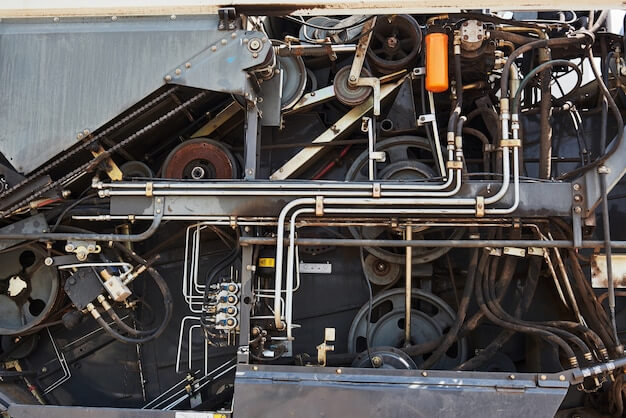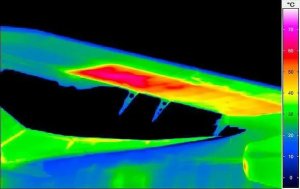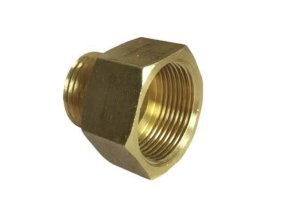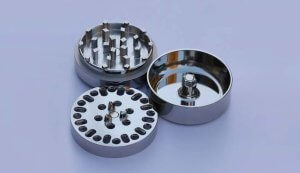Introduction: CNC Machining and its Role in Advanced Semiconductor Manufacturing
CNC machining, or Computer Numerical Control machining, refers to the process of subtracting material with high-speed precision machinery instructed by computer programming. It is a system utilized across various industries for producing complex parts and components with great accuracy and consistency. In the realm of advanced semiconductor manufacturing, the importance of high-precision CNC machining cannot be overstated. The microscopic dimensions and intricate layouts involved in semiconductors necessitate exceptional precision and reliability – attributes central to CNC machinery.
- CNC machining offers unparalleled precision that supports the fabrication of small and complex semiconductor components.
- The repeatability facilitated through CNC machines ensures consistent production, crucial as semiconductors are often manufactured in vast quantities.
- Incorporating automated processes reduces room for human error and enhances efficiency — integral factors considering the delicacy and costs associated with semiconductor manufacturing.
By leveraging high-precision CNC machining, manufacturers can successfully produce and develop advanced semiconductors, propelling us further into the digital age.
Overview of Advanced Semiconductors
Semiconductors play a pivotal role in the realm of modern technology, serving as the backbone for tech-centric sectors such as computing, telecommunications, and electronics. Semiconductors possess an inherent ability to regulate electrical current, a quality which allows them to facilitate the functionality of various digital devices by controlling signal processing and power conversion.
The production of advanced semiconductors necessitates strict requirements due to their intricate design and critical role in complex electronic systems:
- Precision: With semiconductor components often featuring millions of transistors within a tiny area, high precision is non-negotiable during manufacturing. This requisite level of accuracy can be achieved through Computer Numerical Control (CNC) machining and other delicate fabrication methods.
- Quality Materials: The choice of materials significantly impacts performance. Silicon remains the most prevalent one due to its excellent semiconductor properties.
- Clean Room Standards: To minimize contamination that could compromise device reliability, the manufacture of semiconductors demands a strictly controlled environment—often a clean room facility.
The Role of High-Precision CNC Machining in Semiconductor Production:
- High-precision CNC machining plays a crucial role in the manufacturing of advanced semiconductors, offering the high accuracy and wide material support required for semiconductor production.
- With its ability to achieve extremely tight tolerances and intricate designs, high-precision CNC machining ensures the production of semiconductors that meet the stringent requirements of the electronic industry.
- To explore high-precision CNC machining for semiconductor production, consider utilizing online CNC service for efficient and reliable manufacturing solutions.
Benefits of Using High-Precision CNC Machines in Semiconductor Manufacturing
The adoption of high-precision CNC machines in semiconductor manufacturing brings a multitude of advantages, driving both efficiency and product quality improvements. Firstly, these advanced machines deliver significant gains in processing speed and precision, elevating manufacturing productivity. They also reduce the chances of human errors as they are programmed to perform tasks with extreme accuracy. This ensures that all products conform to specified parameters, minimizing waste resulting from faulty production.
- Efficiency & Productivity:High-precision CNC machines ensure rapid fabrication processes, reducing production time significantly. Advanced capabilities, such as multi-axis machining, enable simultaneous operations on multiple faces of a component, leading to faster turnover times.
- Quality Improvement:With stringent control over process variables, such CNC machines guarantee consistent outputs in semiconductors. They reduce instances of defects or variations in end-products by maintaining scrupulous adherence to design specifications.
In conclusion, the application of high-precision CNC machines vastly improves efficiency and raises the standards of quality in semiconductor manufacturing.
Understanding the Challenges in CNC Process for Semiconductor Manufacturing
The semiconductor manufacturing process often faces numerous challenges, with one of the key pain points being lack of precise control during the machining process. Minute errors during production can result in faulty chips and considerable wastage. Other common issues include material inconsistencies leading to variances in electrical properties, thermal mismanagement causing warpage or delamination, and difficulties in achieving high aspect ratio features.
To address these concerns, high-precision Computer Numerical Control (CNC) machining emerges as a promising solution. The precision provided by CNC machining enables tighter tolerances and superior consistency, drastically reducing the risk of chip imperfections. For instance:
- CNC machines use automated controls eliminating operator errors and ensuring uniformity across all manufactured components.
- Material inconsistencies can be mitigated through stringent quality check routines executed via software.
- Sophisticated coolant systems in CNC machines help manage heat effectively to avoid warping and delamination.
- Advancements in spindle technology enable efficient production of high aspect ratio features.
Their adaptability and wide range of capabilities also allow them to meet rapidly changing market demands and technological advancements within the electronics industry.
Effective Use of High Precision CNC in Semiconductor Production: A Case Study
In the field of advanced semiconductor manufacturing, real-world instances vividly demonstrate the critical role high-precision CNC machining serves. One such case centers around Intel Corporation, a leading technology organization that has leveraged this capability notably well, particularly within its D1X research facility located in Oregon, United States. Their implementation of high precision Computer Numerical Control (CNC) machining processes underpins their success. The paramount focus here is on accuracy and speed.
- Semiconductor wafers: In order to ensure seamless wafer fabrication, Intel uses high-precision CNC machines that work with utmost precision and consistency, dramatically reducing the margin for error in the circuitry design process crucial to semiconductor functionality.
- Chip creation: The company operates sophisticated multi-axis CNC machines for designing chips, enabling complex adjustments to cater to diverse chipset specifications, thereby accelerating product development cycles.
- Maintenance efficiency: Additionally, they also deploy automated CNC machinery to conduct routine preventive maintenance operations, ensuring prolonged durability and enhanced performance of semiconductor devices.
This example perfectly encapsulates how implementing high-precision CNC machining can revolutionize operational efficiency and enhance productivity, ultimately securing a competitive edge in the dynamic and increasingly challenging semi-conductor manufacturing sector.
Other Articles You Might Enjoy
- Understanding and Exploring Bead Blasting in CNC Machining(copper plating Murray)
Bead blasting is an integral process in the realm of Computer Numerical Control (CNC) machining, often used for finishing or cleaning metal components. In simple terms, bead blasting involves leveraging…
- Innovative CNC Machining for Advanced Spacecraft Components
Introduction: CNC Machining and its role in Spacecraft Components Computer Numerical Control (CNC) machining has, over the years, proven to be one of the most integral pillars within manufacturing industries.…
- Ceramic Tooling in CNC Machining: Breaking the Myths About Durability and Performance?
CNC Machining and Ceramic Tooling: Busting the Myths Computer Numerical Control (CNC) machining is an advanced method of manufacturing where pre-programmed software controls the movement of factory machinery, giving intricate…









